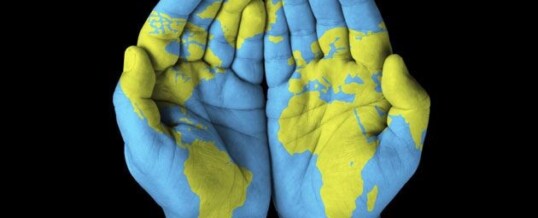
McLeod Group guest blog by Molly den Heyer, April 7, 2020
If you speak to any hardened international development practitioner, they will share stories about epidemics, states of emergency, conflicts and economic crises – but most will also acknowledge that this time is different. There is no green zone or safe third country to which to retreat from COVID-19. This global pandemic will, according to projections, ebb and flow for many months.
While experts in humanitarian aid jump into high gear, it is time for development experts to assess the road ahead. How are links between the global and the local shifting? What do the travel bans mean for international development? What is working and not working in this new global reality?
The ease with which this virus is transmitted illustrates just how interconnected everyone is and that there is still a need for humanitarian and development work. The well-being of one is simultaneously the well-being of all. Yet there will be disproportionate effects on people, depending on their citizenship, gender and class. Residents of refugee camps and urban slums and at-risk populations are facing unprecedented and potentially catastrophic circumstances. If anything, the need to address inequality and poverty is stronger than ever.
While the pandemic illustrates our interconnectedness, it also pulls us apart as we rush to self-isolate, individually and collectively. The sudden implementation of quarantines, social distancing, travel bans and closed borders have redefined the connections between local and global communities. Everyone, including the frequent flyers who work in other parts of the world, are now physically confined to their local and can only reach out through the internet and phone. In this quarantine culture, there is a clear need for international and national leadership and coordination, but success depends on the capacity of people in their local areas.
The type of development approach adopted has a significant influence on the extent to which a project builds local capacity. In this vein, there are two interconnected characteristics to consider in development practice.
The first focuses on the long-term benefits of learning. From a learning approach, the development project can be viewed as a journey that tests and refines the theory of change. Different types of knowledge, lived experience, data and perspectives are shared and discussed with the intention to learn from the process and enhance contributions to the overall goal. Everyone learns and is encouraged to apply new knowledge, skills and attitudes in their immediate work, local communities and future projects. Investing in learning and enhancing capacity allows the project to continue even when team members are unexpectedly absent, as in the current crisis.
The second characteristic to consider is the ways in which genuine partnerships are formed. Successful, durable partnerships are primarily based on intangible relationships of mutual trust, respect and good communication. If these are present, then the partnership can transcend distance and thrive in an online environment. While development practitioners cannot currently travel, money, reports, resources, ideas and relationships can continue to flow online. For example, those who invested in North-South-South partnerships or Southern networks can still contribute to development projects by relying on their relationships with local actors around the world.
These characteristics require a fundamental and long-discussed – but still elusive – shift in mindset, from seeing development projects as something Western development practitioners do, to stepping back and working in home communities as well as supporting those in other distant localities. Or moving from top-down aid administration to development cooperation.
The pandemic requires international and national leadership. However, in the end, it is individuals who will need to change their behaviours in order to keep themselves and their communities safe.
Development practitioners need to reach out to their partners around the world, discuss the changing context and adapt to the immediate needs on the ground. One of the lessons learned from the Ebola outbreak in Sierra Leone is that aid donors who kept partners on the payroll and adapted programs to help local communities address their immediate needs ultimately contributed to the country’s recovery and forged genuine partnerships that lasted well beyond the crisis.
Other practical ways to enhance development cooperation at this time include: emphasizing social cohesion in all communications and activities, investing in North-South-South networks or local-to-local development cooperation, budgeting for capacity building and learning, creating accessible online spaces to share and adapt ideas, extending programs to catch those falling through the cracks, listening to local partners and adapting to their specific context, and being flexible when it comes to reporting and predefined outcomes. This unprecedented situation requires authentic learning and adaptation.
In time, the borders will reopen. But it is important to take this opportunity to reflect, adapt and implement new ways of working in order to improve the effectiveness of development practice and foster well-being for all.
Molly den Heyer is a Halifax-based scholar-practitioner who uses monitoring, evaluation and research to assess theories of change and how societies are or are not transformed.
